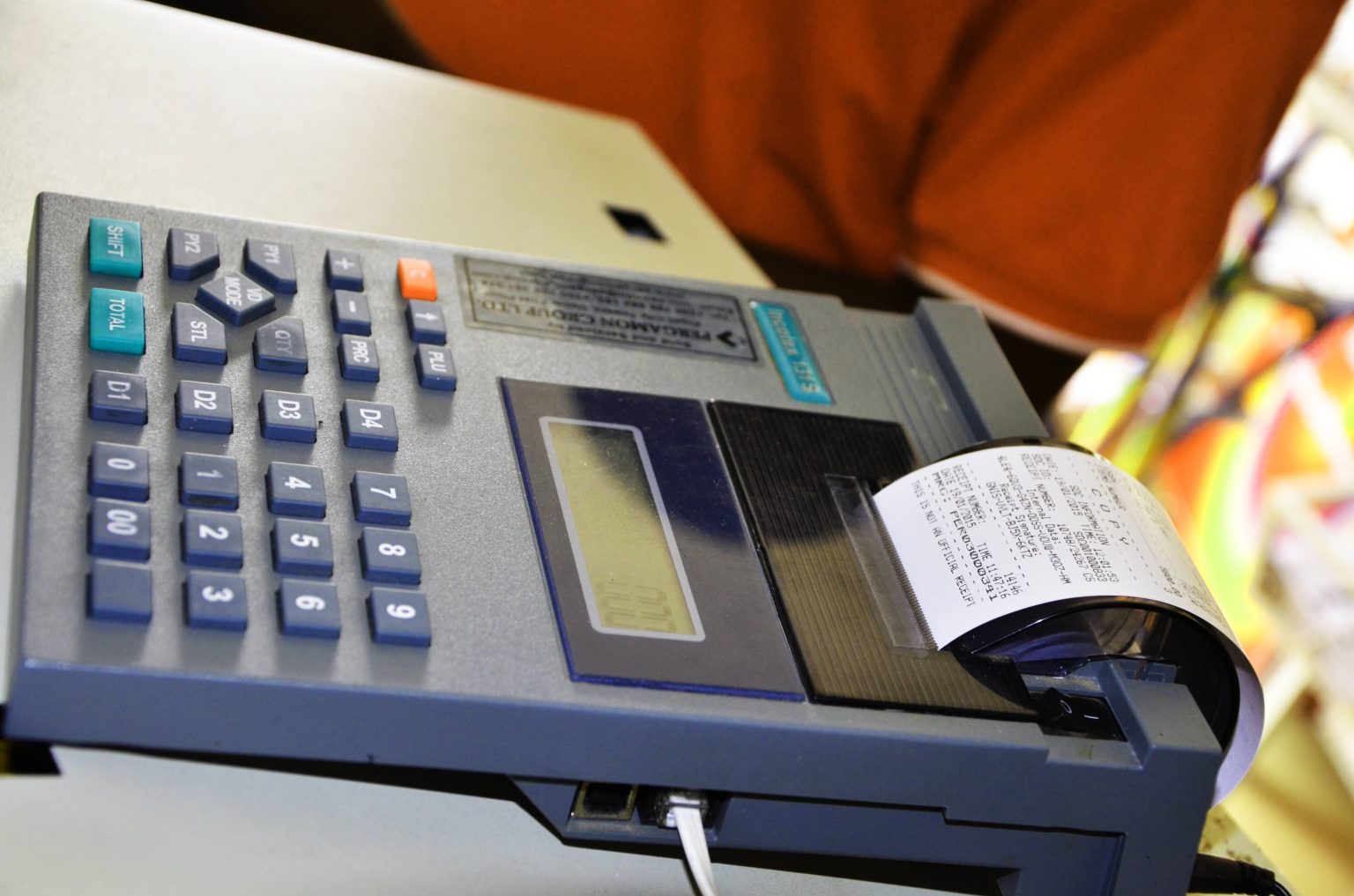KIGALI – Solange Mukamana needed a new mattress when she visited the Kimironko market in Kigali. Finally settling on the one she wanted, she paid the merchant RwF70,000 ($50).However, when Mukamana received the official sales receipt through the government’s Electronic Billing Machine (EBM), she was shocked to see her purchase reflected as RwF55,000, significantly less than what she paid for the mattress.
“That’s stealing,” said the 34-year-old teacher. “I asked the trader about the discrepancy, and he told me that if he had known I was going to ask for an EBM receipt, he wouldn’t have sold me the mattress at that price.”
Rwanda introduced the EBM system in August 2013 to modernise the country’s tax collection and improve payment of Value-Added Tax (VAT), the country’s largest source of domestic tax revenue.
Each EBM connects to a business’s pay point, automatically calculates the VAT, prints a receipt with a QR code, and immediately sends relevant data to the Rwanda Revenue Authority (RRA), creating a reliable way for the government to track payments.
In Mukamana’s case, the merchant was going to pay less VAT on the value of the transaction by issuing a receipt that was significantly less than the actual cost of the product.
Her experience is not unusual. Interviews with half a dozen people in three centres, including Kigali, Huye and Musanze, show the practice of understating prices – or not issuing any receipts at all – is common among many small businesses.
In 2022, the government upgraded the system to lower hardware costs and improve access. The McCourt School of Public Policy at Georgetown University in the United States, which studied Rwanda’s new EBM system, said it allowed traders to use smartphones, computers or tablets to issue digital receipts and share details via Cloud data storage, helping small and medium businesses comply more easily.
HAND OVER THE RECEIPT
Mukamana, the teacher from Kigali, said she did not report the incident to the RRA because she wanted to avoid a confrontation with the merchant. Other customers interviewed said they felt intimidated or discouraged from speaking out.
Justin Biregeya, a photographer from Kigali, said a phone vendor at Kimironko Market warned that he would have to pay more if he wanted an EBM receipt. “The phone vendor told me it would go from Rwf 250,000 to Rwf 280,000. Similarly, a laptop seller added Rwf 50,000 just for issuing a receipt,” said Biregeya.
In Huye, a town in Rwanda’s Southern Province, Polytechnic student Jean Claude Bizimana said a shop owner scolded him when he asked for an EBM receipt, telling him: “Return the item and leave.”
Fraterne Tuyizere said he had to return to a supermarket in Kigali twice to ask for a receipt. “They said the machine was broken,” said Tuyizere, adding: “I paid using Mobile Money, so I reported the case to the RRA.”
In some cases, business owners instruct employees not to issue receipts or to make an excuse.
“My employer told us to say the person who issues receipts is not around,” a grocery store worker in Musanze said. While she did not request anonymity, her name is being withheld to protect her from possible retaliation. “Sometimes we say the machine is broken. Customers get upset, but there’s nothing we can do,” she added.
Some merchants acknowledge they deliberately sidestep EBM regulations to avoid paying taxes.
“If you buy pork or goat meat from a rural supplier without an EBM invoice, and then issue a receipt to your customer, you end up paying high taxes,” said Libert Uwishema, who owns a bar-restaurant in Huye. “It’s a loss, so many avoid it.”

PURSUING TAX EVADERS
More than 135,000 traders are registered under the EBM system, according to the Rwanda Revenue Authority (RRA). In just one month in 2022, more than 450 traders were found to have avoided paying taxes totalling more than Rwf 300 million, the RRA said. The following year, RRA investigations revealed 260 traders who had deleted transactions from their EBM machines, while more than 5,800 did not use the machines at all.
In the Southern Province alone, around 10,000 traders avoided issuing receipts, resulting in an estimated Rwf 24 million loss in VAT revenue, the RRA said.
Meanwhile, between 2020 and 2024, the Rwanda Investigation Bureau (RIB) investigated 1,069 EBM-related tax evasion cases, peaking at 498 cases in 2021 before declining to 117 in 2024.
 Under Rwandan law, tax dodgers can be fined up to ten times the amount of tax they owe, with repeat offenders facing double the penalty.
Under Rwandan law, tax dodgers can be fined up to ten times the amount of tax they owe, with repeat offenders facing double the penalty.
Among the more prominent cases of missing EBM receipts, a 44-year-old man was arrested in 2023 by the Rwanda National Police after attempting to bribe an officer with Rwf 70,000 to avoid prosecution for selling timber without issuing an EBM receipt.
REWARDS FOR RECEIPTS
To tackle the problem, the RRA last year launched the “VAT Reward” program – known locally as ‘Ishimwe kuri TVA’ – to encourage consumers to ask for EBM receipts.
“Consumers who request EBM receipts receive 10% of the VAT shown,” said Jean Paulin Uwitonze, deputy commissioner for taxpayer services. “Those who report traders who refuse to issue receipts receive 50% of the fine imposed.”
“When customers demand receipts, they are helping the country. Everyone should make it a habit,” he said. In March 2024, the RRA distributed RwF95 million among 8,000 consumers under the program. So far, about 25,000 consumers have registered for the reward program.
EDUCATION IS KEY
Fidèle Mutemberezi, an economist and lecturer at the University of Rwanda, said educating the public about the importance of EBM receipts was essential.
“Every business should have a designated staff member to issue receipts. Authorities must ensure this is done,” he said, “but more importantly, people must understand that paying tax is an investment in national development.”
In February 2025, Minister of Finance and Economic Planning Yusuf Murangwa announced that tax revenue accounted for 14.6% of Rwanda’s Gross Domestic Product in the 2023/2024 fiscal year. The government’s target is to raise that figure to 23% by 2035
Mutemberezi said the EBM system had proved to be an effective and reliable way to collect taxes. “The EBM program is a good initiative and is delivering results,” he said. “Twelve years is not a long time, but the government should continue educating the public and traders about the importance of taxes and take action against evaders.”

This story was supported by the Thomson Reuters Foundation as part of its global work aimed at strengthening free, fair and informed societies. Any financial assistance or support provided to the journalist has no editorial influence. The content of this article belongs solely to the author and is not endorsed by or associated with the Thomson Reuters Foundation, Thomson Reuters, Reuters, or any other affiliates.




